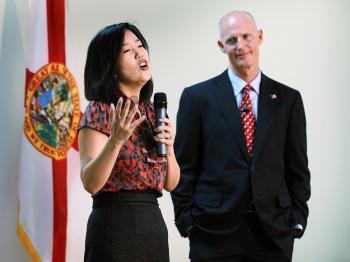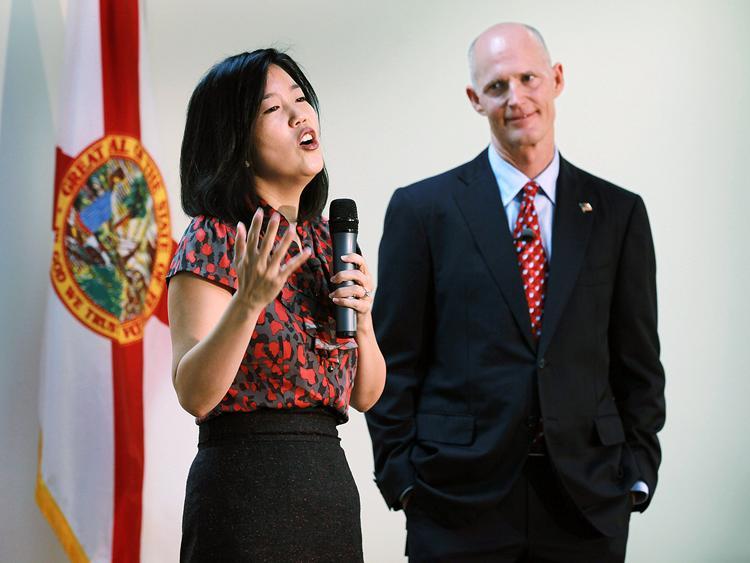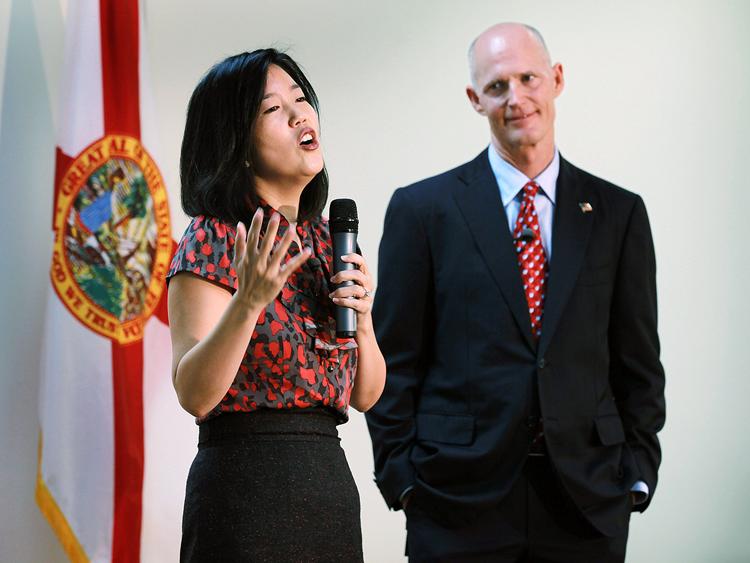Michelle Rhee and National Education Reform
StudentsFirst aims to reform an outmoded bureaucracy that protects the interests of adults at the cost of children’s.

Michelle Rhee, who was named as the Informal Education Advisor to the Governor, speaks as Florida Gov. Rick Scott (R) listens during a visit to the Florida International Academy on Jan. 6 in Opa Locka, Florida. Joe Raedle/Getty Images
|Updated:
Reporting on the business of food, food tech, and Silicon Alley, I studied the Humanities as an undergraduate, and obtained a Master of Arts in business journalism from Columbia University. I love covering the people, and the passion, that animates innovation in America. Email me at andrea dot hayley at epochtimes.com
Author’s Selected Articles






